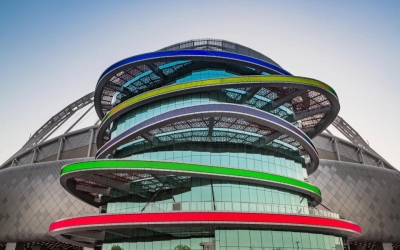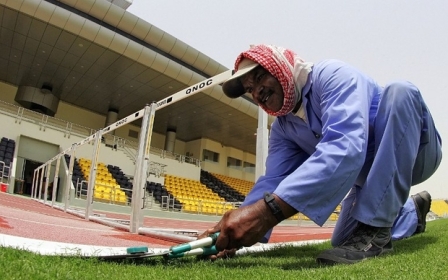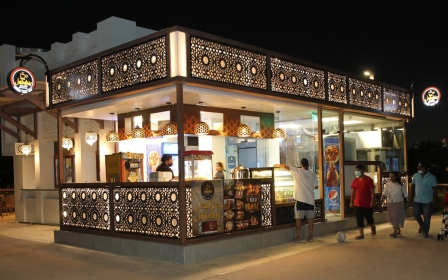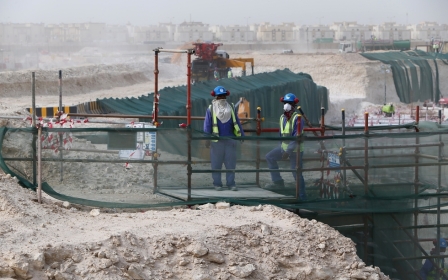David Beckham slammed for $200m ambassadorship deal with Qatar

Former England football team captain David Beckham has caused controversy with his decision to sign a £150 million ($206.5 million) deal to become a cultural ambassador for Qatar.
The ten-year deal comes after Beckham flew to Doha earlier this month, and will see him become the face of the World Cup hosted by Qatar in 2022.
New MEE newsletter: Jerusalem Dispatch
Sign up to get the latest insights and analysis on Israel-Palestine, alongside Turkey Unpacked and other MEE newsletters
As part of the deal, Beckham will promote the country’s tourism and culture.
However, many have raised concerns over the deal, citing Qatar’s human rights record as well as its treatment of foreign workers and the LGBTQ community.
A spokesperson for Beckham quoted in British media defended his decision, stating that the football star was passionate about using the "power of football as a force for good on many levels".
Amnesty International issued a statement on Sunday urging Beckham to learn about Qatar’s human rights record - which the rights group's interim CEO in the UK Sacha Deshmukh called "troubling".
“It’s not surprising that David Beckham wants to be involved in such a major football event, but we would urge him to learn about the deeply concerning human rights situation in Qatar and be prepared to speak about it,” she said.
The rights organisation also used the statement to shed light on the restrictions on free speech in the country, the criminalisation of same-sex relations, and the plight of migrant workers.
“Despite some welcome reforms, migrant workers are still being left unpaid, and the authorities have failed to investigate thousands of deaths in the past decade despite evidence of links between premature deaths and unsafe, searingly-hot working conditions,” Deshmukh added.
The deal has divided opinions online, with some social media users pointing out that the news came out just as many in Qatar were facing salary cuts.
Human Rights Watch had previously reported that employers in Qatar frequently deprive workers of their wages and that the Covid-19 pandemic has exacerbated the risks posed to already vulnerable migrant communities.
At least 6,500 migrant workers from south Asian countries are estimated to have died in Qatar since the country won the right to host the Fifa World Cup in 2010.
According to data compiled by The Guardian, an average of 12 migrant workers from India, Pakistan, Nepal, Bangladesh, and Sri Lanka have died in Qatar each week in the period between 2011 and 2020.
Middle East Eye delivers independent and unrivalled coverage and analysis of the Middle East, North Africa and beyond. To learn more about republishing this content and the associated fees, please fill out this form. More about MEE can be found here.





